#qld education
Explore tagged Tumblr posts
Text

Well, looks like I'm home-schooling my child.
This isn't an abrupt decision it's the result of a gradual eroding away of my child's ability to function within the school system. Of me considering all the options and working with the school as best as I can. Of reading about how teachers in the Australian education system are burning out at lighting rates, leaving the profession in droves, and choosing to home-educate their own children.
My child can't do school anymore. He just can't. He tried so hard. He's brilliant and not being challenged in maths. He's struggling and not being given help in spelling. Going to school isn't what's best for him and it hasn't been for a few years now.
This is going to be hard. I literally have leukemia.
But it's going to be worth it. It's going to be good for him. I can finally stretch him as far as he can go with his maths skills. I can finally help him 'get' spelling. Because he's been going to school, there hasn't been enough time for me to teach him at home.
The main downside is the lack of social opportunities. So for that I'll find groups, after school activities, coding clubs, chess clubs, for him to join and socialize with. I'll get better myself so I can organize playdates for him.
When your kid explains school using the metaphor of Loki's torture with the water dripping on his head for eternity (that he picked up on YouTube, and which I believe was actually venom, and I told him everything I remembered about that myth, so hey, we're learning more things already) I feel that's a decent indication that the schooling system is not working for them.

#home school#home education#homeschooling#education#australia#qld education#australian education system#autistic child#neurodivergent child#school refusal#school can't#parenting#parenthood#motherhood#child#journal#personal#journal entry#mumblr#momblr#leukemia#leukaemia#single mum
1 note
·
View note
Text
#wanttosettleinregionalaustralia#coursesinregionalaustralia#peach institute#fasttrackcoursesregionalaustralia#studyinregionalaustralia#education#Certificate 3 Commercial Cookery Gold Cost#Certificate 3 Commercial Cookery Regional NSW#Certificate 3 Commercial Cookery Regional QLD#Certificate 3 Commercial Cookery Regional Queensland#Cookery Course Gold Coast#Cookery Course Regional NSW#Cookery Course Regional QLD#Cookery Course Regional Queensland#Trade Courses Regional NSW#Trade Courses Regional Queensland#Pr Courses Regional Queensland#Pr Courses Regional QLD
0 notes
Text
In late 1860 Edmund wrote asking the Governor to appoint him Police Magistrate at Ipswich:
I make this request as I have a large family whom I am desirous of having located in a place possessing educational advantages.
I would beg to remark that I am not unknown to many of the old Inhabitants of Ipswich as I lived for some years on the Wivenhoe Station and used to attend the Ipswich Bench.
"Killing for Country: A Family History" - David Marr
#book quotes#killing for country#david marr#nonfiction#60s#1860s#19th century#edmund uhr#letter writing#questions#government jobs#police magistrate#ipswich#qld#queensland#australia#education#wivenhoe
0 notes
Text
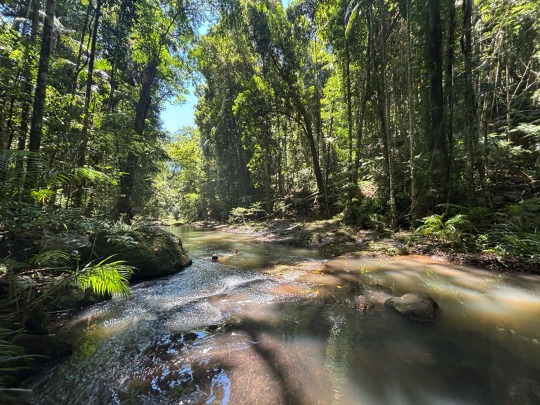
I’m up at five to get the train two hours from the city. She drives me out to a lake, the quarry kind, and says time to hitch a ride. Sheepish. Are you crazy. Hitch or walk twenty-four kays. First are partner visa sweethearts having trance vibes, she an English rose, he Moroccan from Lake Como dripping sacred geometry bracelets. In town we get sunstroke, get to noon, uncollected, unloved, in fudge shop dairy cow kitschtopia, till she flags down a big old beast whose backseat turns out to be full of slobbering dog and detritus, like, hoarder car, and she blabs our full hike itinerary and places of residence while I clench my legs in the junked up filthy cluttered but dogless front seat and obfuscate her disclosures. Gritted teeth, girl squeeze my hand if you are capable of strangling him from behind… and then he lets us out and I’m scampering around tripping over my reprimands. We get in behind rainforest waterfalls all day and eat whole mangoes and cliff-jump and stand right in the falls being pummelled. Pools stacked on pools and pools and pools all bridged by falls. Stairway to heaven. Wiry little albinos fearless getting feet in crevices hopping right round us and leaping off. Twelve k in our bikinis. We have surgically unpicked ourselves from our lineage and then every member of that lineage, in receding order, from their forebear. I’ve had the thought: I am game to talk forever. I never want to need to break or go to sleep or anything. But then lapse and like, la petite silent mort of the ego, infinite regress of selves watching selves. Normal. And all this week I’ve been swimming circles around the teatree watering hole, running barefoot on the empty beach at dawn, getting lost in the forest, swimming in rips in storms, walking on the empty beach in storms, clearing the backlog of mental sediment until thought is distilled to a single monologue and then once the thesis is set down to a dialogue. An internal forum of supreme health. Next waterfall sweeps us 500m back. Deep qld afternoon blue, cornflower now with no canopy. Every few minutes of nothing: a deafening eruption of cicadas. Then nothing. We access a fearful memory, she comes with me into my fear, it’s educational, she wants to teach me how to feel, but I access it via thoughts: “I am suffocated. My autonomy is taken.” I am ideal for death row. I’ll grieve my own life with a series of cue cards, with ticker tape. I am switching over the cards or I am in the newsroom typing. Now breathwork. I get to like, almost feeling something. Gold star! Her stupidest student. Then I feel cold. I’m still in a whirlpool, flattened against a rock, hands clenched, air suddenly dark, a black-green. The shivering implodes into a feeling I’ve only ever had during sex. Quivering annihilation. Paralysis. I am laying back, in the memory, with my teen self in the bedroom, assuming the very posture. Cicada crescendo. My lip quivers, I mean pulses, as I flee. Need sun and rock. The kind paternal bone of the world. I’ve animorphed to snake. Stretch and roll. (Now I am on mushrooms on a clifftop in Herzegovina at sunset, another heatwave day, the hazy Ottoman warmth throbbing up through my spine.) She looks at me as I’m standing weakly up from chaturanga and struggling back against the current. This is the first day of my life. What’s the bright world. I don’t know where I am, I don’t know where I’ve been, but I. Know where I want to go. Oyster-blue milk starred by pondskaters spiking red into the blue opacity. Angles of the RGB light. Fern crosshatching. Yes, swear I’ll remember it… how ridiculous… I cannot forget what I have seen so clearly. It will be safekept somewhere. Because I have worded it. I made those descriptions in real time, I confess, oyster-blue, it’s true because I peeled the label straight off the world. I encountered it, FOR THE FIRST TIME, as plain text, emotional domain bypassed.
Back in rainforest (and unsteady still and amorphous and dusk coming) I am in floods of logorrhoea. Talking really earnestly about memory, knowing my handwriting when I write will be the huge rambling cobwebs that follow the use of certain drugs. Loosethumbed. I’m like, yes, yes, you’re good, you’re amazing, I’m okay. I’m just gonna do this more and more forever and why would I not? And yes community, yes intimacy, yes we must all live together and feel each other’s wounds, it’s impassioned leftist sentiment… and she’s affirming something too.
21 notes
·
View notes
Text
Australia News: 24.3.24.
1.) "The Australian dream of owning your own home - Albanese style. Coming to a city near you."

2.) "Media Shame File: Journalists show their economic illiteracy daily when it comes to immigration, but even so it's worrying that the political editor of The Age doesn't seem to understand how unemployment can fall during record-high population growth."
I'd say they were fully aware of what they were doing.
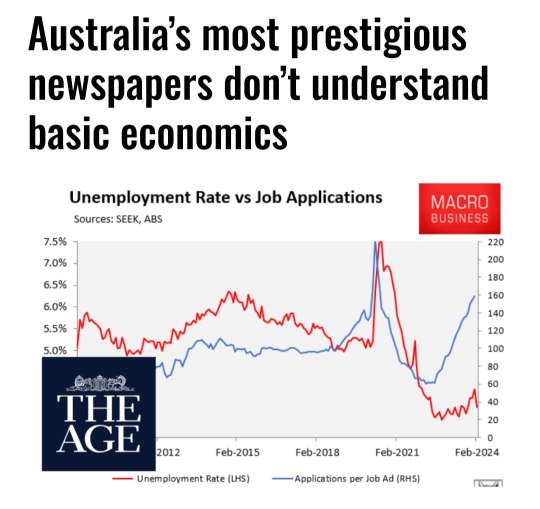
3.) QLD HOMESCHOOLING CRACKDOWN ->
https://youtu.be/TudVFaYc36A
Make a submission: https://qldparlcomm.snapforms.com.au/form/eetsc---education-general-provisions-and-other-legislation-amendment-bill-2024.
It is highly likely that other governments will enact similar harsh laws if they succeed in Queensland. Do not let them.
Also "Our main points of concern:
we do not want to be restricted to using the Australian Curriculum.
reporting to EVERY area in the plan and PROVING educational progress is too much and not even required in schools.
determining if home education is in the best interest of the child is a parental right, this power doesn't belong with the Education department."
Parents should have the freedom to decide how best to educate their children because education is not a one-size-fits-all solution.
4.) NDIS - What is myplace?
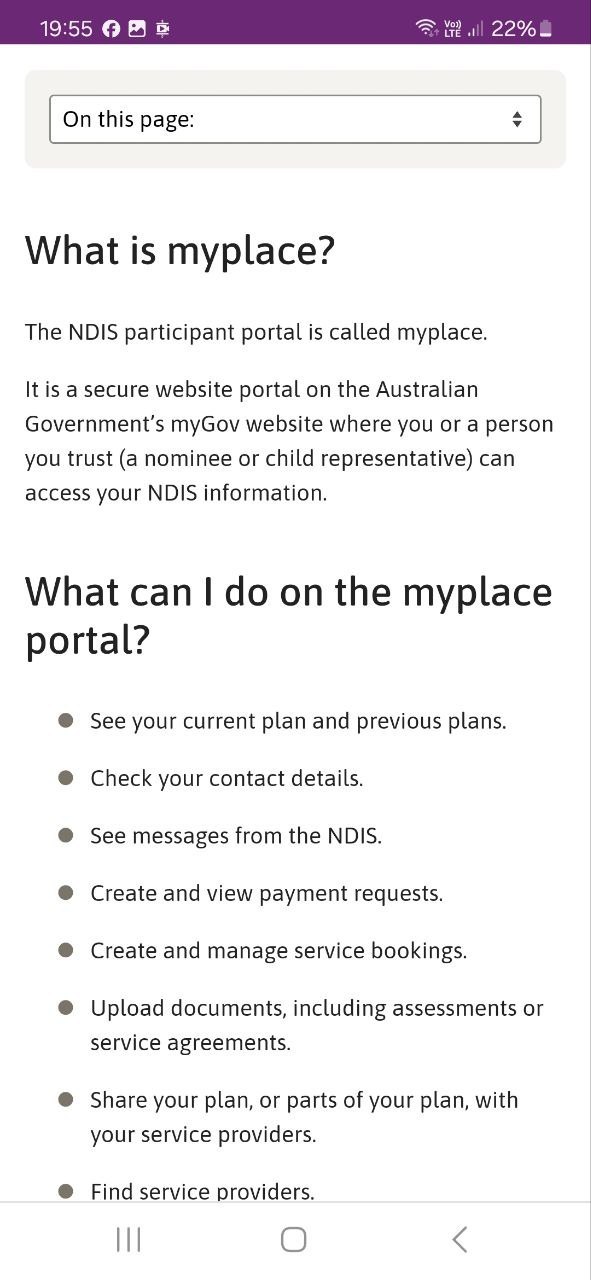
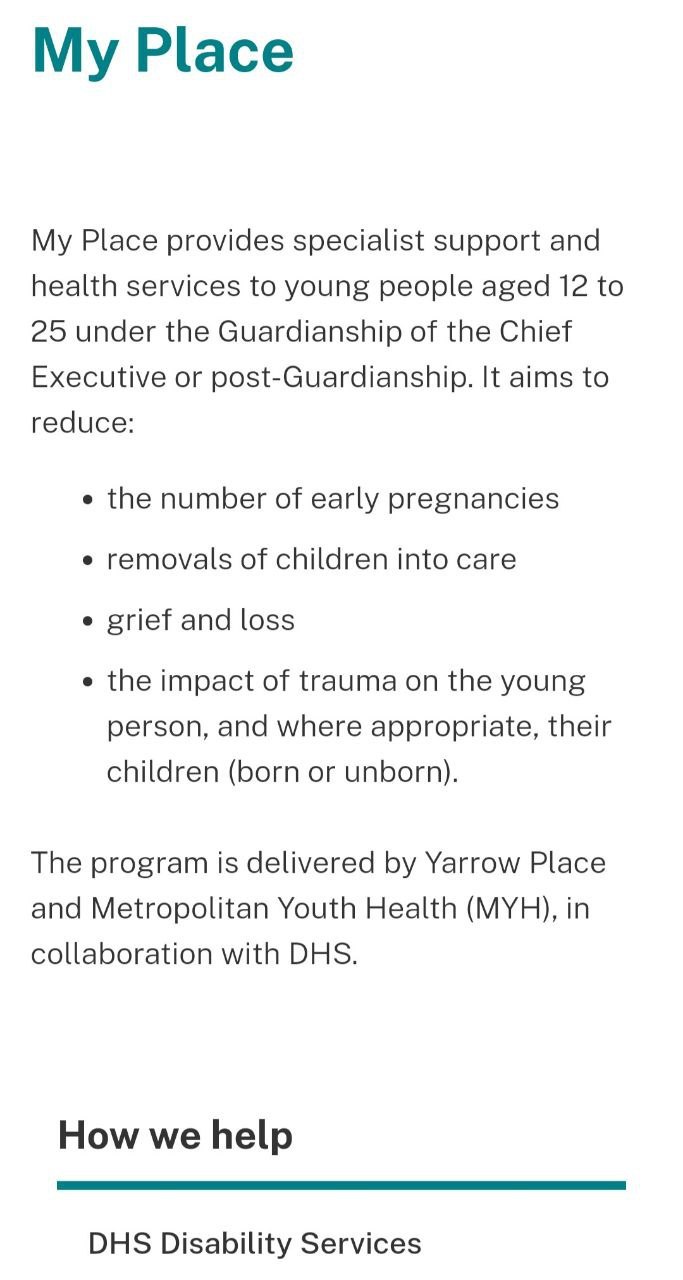
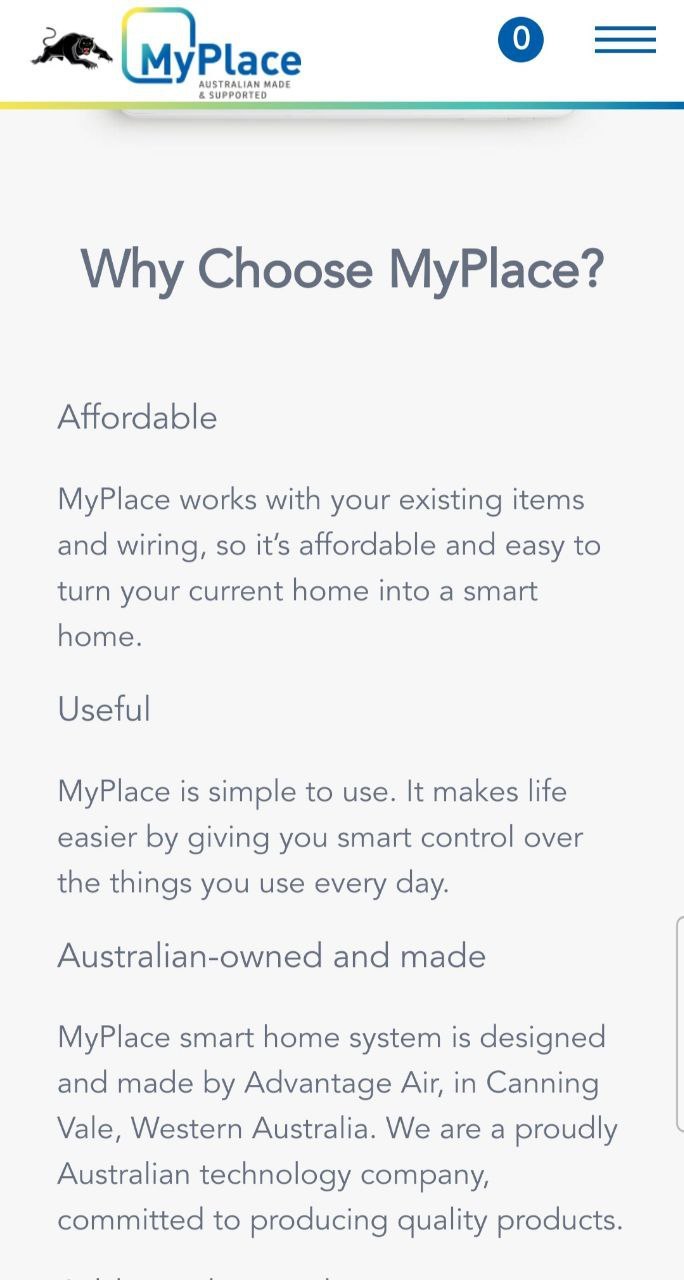
"Just a heads up for all you MyPlace people. There are already trade marked companies in Australia using that name.
Be warned you may be in danger of copyright infringement and court action.
I'm telling you this because I care that you don't get sued, and also because you really should not use someone else's business name. Be original rather than just copying someone else.
The MyPlace brand in Australia is to do with Government, Monitoring, Professional Sports Sponsorship, Public Education and The NDIS. Do you really want your name involved with that?
I wouldn't.
@roobsaussieflyers."
5.) Australia Immigration ->


"Record immigration is causing a housing crisis that’s now a human catastrophe
The more serious governance issue is Labor federal government lying last year saying it would reduce immigration
One Nation exposed the Lib-Lab Uniparty “big Australia”
People want immigration cuts." - Senator Roberts uncensored - Telegram.
6.) "Getting a COVID jab is safer than taking aspirin."

"Currently appears on the University of Melbourne website.
“The risk of rare side effects from COVID-19 vaccines like AstraZeneca are greatly exaggerated as they are far safer than many medicines people are taking every day.” "
- @PeoplePowerAus.
2 notes
·
View notes
Note
Hi, Kirri! I'm from South America and I'm trying to do a research about australian high school. I would like you to clarify some questions I have about school subjects, like: which ones are optional and which are mandatory? also, if you could send me some reliable websites than i can look up. every website i see says something different, can be very confusing so I decided to ask a australian person. Thank you!!!!
Hi, hey, i've been summoned! Okay, i'll admit to you upfront, it's been a hot minute since I was in high school so my knowledge is partly from personal experience but also what is published online. The school structures and curriculum differs from state to state, so it's no wonder you had trouble finding clear answers. I'll try to explain simply:
Australian high schools run from years 7 to 12. (We actually have 13 school years in total including Kindergarten, or preparatory, which is not numbered.) Students can finish in year 10 if they choose not to complete their senior years and test for university entry. If a student finishes in year 10, they get a Record of School Achievement; if they finish senior studies, they get a certificate of education depending on which state they're in:
NSW - Higher School Certificate (HSC)
VIC - Victorian Certificate of Education (VCE)/Victorian Certificate of Applied Learning (VCAL)
QLD - Queensland Certificate of Education (QCE), Queensland Certificate of Individual Achievement (QCIA)
SA - South Australian Certificate of Education (SACE)
WA - West Australian Certificate of Education (WACE)
TAS - Tasmanian Certificate of Education (TCE)
ACT - Australian Capital Territory Senior Secondary Certificate (ACT SSC)
NT - Northern Territory Certificate of Education (NTCE)
The national curriculum has eight compulsory learning areas, which can be categorized into subjects:

Then there are a wide range of electives, which vary greatly depending on region, type of school (state-funded vs private/faith-based) etc. Students in years 9 and 10 typically choose three electives. Here is an example of electives available to a school in NSW.
In addition, many schools offer the opportunity to study a vocational (often trade-based) course in preparation for studies after high school, called TVET (TAFE-delivered Vocational Education and Training). Many of these course results in credits toward school outcomes. I guess you could say that TAFE to Australia is like community college to the US.
The school year is broken up into four 'terms', with dates varying between states (see links at end for a list). A typical school day goes from 8:45am to 3:00pm Monday to Friday, with breaks for recess and lunch between period. A 'period' = one class, which typically runs for 40 minutes.
Upon completing senior studies and final exams, students are given an ATAR (Australian Tertiary Admission Rank), which they can use to select and be admitted to university. In fact, senior exams have just begun so it's a good time to keep an eye on social media and see how current students are talking about the experience! 'ATAR Day' (when rankings are released) is on December 14, another time to take a look.
Australia also has specialist high schools, such as creative and performing arts schools, intensive English centres (for students with English as a second language), sports schools, and technology schools. All of these must teach the compulsory subjects, but offer the chance to specialize in these areas.
Websites where you can learn more about the Australian curriculum:
Australian Curriculum Version 9.0 Australian Schools Directory
Study Australia
ACARA (for statistics)
TVET
ATAR
Hopefully that will help you! I hope you don't mind that I posted this answer but I thought it might be useful to others as well. If you have any other questions, go ahead and ask and i'll do my best!
2 notes
·
View notes
Text
Certified Practicing Accountants in Caboolture South: Why You Need Expert Financial Guidance
When it comes to managing your finances or navigating the complexities of your business, having the right professional support is essential. Certified practicing business broker (CPAs) are highly trained and experienced financial experts who can provide valuable insights and guidance to both individuals and businesses. If you're in Caboolture South QLD 4510, having access to trusted CPAs, like those at WhatPriceMyBusiness, can make a significant difference in achieving your financial goals.
What is a Certified Practicing Accountant?
A Certified Practicing Accountant (CPA) is a highly qualified professional who has completed rigorous training and certification. CPAs are experts in areas such as tax, auditing, business consulting, and financial planning. To become a CPA, individuals must meet stringent education and experience requirements and pass a series of exams. CPAs also adhere to a strict code of ethics and professional standards, ensuring they provide reliable and trustworthy advice.
Having a CPA is crucial for both business owners and individuals who want to make well-informed financial decisions. A CPA can offer specialized expertise, ensuring that your financial matters are handled efficiently and legally.
Why You Need Certified Practicing Accountants in Caboolture South
If you're located in Caboolture South QLD 4510, hiring a CPA like WhatPriceMyBusiness can provide numerous benefits. Here’s why you should consider working with a certified professional:
1. Expert Business Advice
Managing a business can be complicated, especially when it comes to navigating taxes, expenses, and compliance with regulations. A CPA can provide the right business advice to help you make strategic decisions. Whether you're thinking about expanding, selling your business, or simply managing cash flow, a CPA can help you plan and execute your business goals.
2. Tax Planning and Compliance
Tax regulations can be complex, and failure to comply can lead to costly penalties. A CPA ensures that your business or personal taxes are filed correctly and on time, while also helping you minimize tax liability. They can guide you through tax-saving strategies and deductions, which can significantly impact your bottom line.
3. Financial Reporting and Analysis
For any business owner, understanding the financial health of your business is crucial. A CPA can help you generate and interpret financial reports such as balance sheets, profit and loss statements, and cash flow reports. These reports provide insight into the performance of your business and can help you identify areas for improvement or growth.
4. Business Valuation Expertise
If you're thinking about selling your business or buying a new one, a CPA is essential for accurately valuing your business. Business valuation is a detailed process that takes into account financials, assets, liabilities, and market conditions. At WhatPriceMyBusiness, we specialize in business valuations and can ensure that your business is accurately valued before any sale or purchase.
5. Personal Financial Advice
In addition to helping with business matters, CPAs can also provide personal financial advice. From retirement planning to investment strategies, a CPA can help you make smart financial decisions that align with your long-term goals. Their expertise ensures that you’re prepared for the future, both personally and financially.
How WhatPriceMyBusiness Can Help
At WhatPriceMyBusiness, our certified practicing accountants are dedicated to providing comprehensive financial services to individuals and businesses in Caboolture South QLD 4510. Whether you need tax advice, financial planning, or business valuation, our team is here to guide you every step of the way. With years of experience and a deep understanding of local financial markets, we are well-equipped to meet your unique needs.
We specialize in providing tailored services to small businesses, helping you navigate the complexities of accounting and tax laws while also offering support if you’re considering selling your business.
Contact Us Today
If you're looking for professional, reliable certified practicing accountants in Caboolture South QLD 4510, look no further than WhatPriceMyBusiness. We’re here to help with all your financial needs, whether you're running a business or managing your personal finances. Reach out today at 0412 179 306, and let’s discuss how we can assist you in achieving financial success.
0 notes
Text
Fortitude Valley Dental Care: Your Trusted Choice for Exceptional Dental Services
If you're searching for reliable and high-quality dental care in Fortitude Valley, look no further! Fortitude Valley Dental Care is committed to providing top-notch services to ensure you achieve and maintain optimal oral health. Whether you're in need of a routine check-up, emergency care, or cosmetic dental treatments, our experienced and friendly team is here to cater to all your dental needs.
Why Choose Fortitude Valley Dental Care?
At Fortitude Valley Dental Care, we understand that visiting the dentist can be a daunting experience for some. That’s why we prioritize patient comfort and use the latest dental technology to make your visit as comfortable and effective as possible. Here are just a few reasons why Fortitude Valley residents trust us with their dental health:

1. Comprehensive Range of Services
We offer a broad spectrum of dental services to meet the needs of individuals of all ages. From routine check-ups and cleanings to more advanced procedures like dental implants, orthodontics, and cosmetic dentistry, our expert team ensures you receive the best care possible.
2. Experienced and Compassionate Team
Our dental professionals are highly skilled, with years of experience in treating patients with diverse dental needs. We also take pride in providing compassionate care, treating each patient with the respect and attention they deserve.
3. State-of-the-Art Technology
Fortitude Valley Dental Care utilizes the latest dental technology and techniques to ensure the highest standard of care. Our cutting-edge tools make procedures quicker, more comfortable, and more effective, helping you get back to your day without missing a beat.
4. Flexible Payment Options
We understand that dental treatments can be a financial burden. That's why we offer flexible payment options, including payment plans, to make dental care more accessible for everyone.
5. Emergency Dental Services
Dental emergencies can occur when you least expect them. Whether it's a sudden toothache, a knocked-out tooth, or any other dental crisis, Fortitude Valley Dental Care is here to help with prompt emergency dental services.
Our Dental Services Include:
Preventative Care: Routine check-ups, cleanings, fluoride treatments, and oral health education to prevent issues before they arise.
Cosmetic Dentistry: Teeth whitening, veneers, bonding, and smile makeovers to enhance the appearance of your teeth and boost your confidence.
Restorative Dentistry: Fillings, crowns, bridges, and dental implants to restore the functionality and appearance of damaged teeth.
Orthodontics: Traditional braces and clear aligners to straighten teeth and improve bite alignment.
Emergency Care: Quick and efficient treatment for urgent dental issues such as injuries, infections, and severe pain.
Convenient Location in Fortitude Valley
Fortitude Valley is one of Brisbane's most vibrant areas, offering easy access to dining, entertainment, and shopping. Our dental clinic is conveniently located in the heart of the Valley, making it simple for you to receive quality dental care while enjoying everything this lively neighborhood has to offer.
Book Your Appointment Today!
Are you ready to experience the best dental care Fortitude Valley has to offer? Our team at Fortitude Valley Dental Care is here to help you achieve a healthy, beautiful smile. Don't wait for dental problems to escalate—schedule your appointment today by calling us or visiting our website.
Contact Information:
Fortitude Valley Dental CareAddress: Fortitude Valley Dentist, 117 Warry St, Fortitude Valley, QLD 4006 Phone: (07) 3544 7777 Website: https://www.fortitudevalleydentist.com.au/
Don’t compromise on your dental health—choose Fortitude Valley Dental Care for personalized, high-quality dental services that you can rely on!
1 note
·
View note
Text
Horizons
This post is about Education and Adventure and Navigation and Orientation Created and written by Author and Blogger Peter Hanns Bloecker, retired Educator at the Gold Coast in QLD Australia. LinkedIn Twitter Instagram Ocean and sailing and Ulysses. Inspired by Ocean Walking plus reading and writing. Walter Benjamin James Joyce Handwriting and more Widening Horizons Through Education In…

View On WordPress
#Business German Podcast#Free German Resources#German Online#Language#Master Your German#Navigation#Wortschatz - Schatz der Wörter
0 notes
Text
Horizons
This post is about Education and Adventure and Navigation and Orientation Created and written by Author and Blogger Peter Hanns Bloecker, retired Educator at the Gold Coast in QLD Australia. LinkedIn Twitter Instagram Ocean and sailing and Ulysses. Inspired by Ocean Walking plus reading and writing. Walter Benjamin James Joyce Handwriting and more Widening Horizons Through Education In…

View On WordPress
0 notes
Text
Childcare Worker
Growing Tree Early Education Kangaroo Point, QLD $60,000-75,000 per year Permanent Full-time Our Client GROWING TREE KANGAROO POINT PTY LTD ABN – 94 651 833 993 – Located in Kangaroo Point, QLD is seeking a Full-time Childcare Worker position for between $60,000 – $75,000 a year. DUTIES: Ensure that children are safe and that their everyday needs are met – this may include diapering,…
0 notes
Text
Childcare Worker
Growing Tree Early Education Kangaroo Point, QLD $60,000-75,000 per year Permanent Full-time Our Client GROWING TREE KANGAROO POINT PTY LTD ABN – 94 651 833 993 – Located in Kangaroo Point, QLD is seeking a Full-time Childcare Worker position for between $60,000 – $75,000 a year. DUTIES: Ensure that children are safe and that their everyday needs are met – this may include diapering,…
0 notes
Text
https://pi.edu.au/wp-content/uploads/2022/06/cpc30620-certificate-iii-in-painting-and-decorating.webp
Our instructors have a wealth of knowledge and years of experience to ensure you learn from the best.
#wanttosettleinregionalaustralia#coursesinregionalaustralia#peach institute#studyinregionalaustralia#fasttrackcoursesregionalaustralia#education#Fast Track Trade Courses#Trade Courses Regional Queensland#Trade Courses Regional QLD#Trade Courses Regional NSW#Pr Courses Tweed Heads#Pr Courses Regional NSW#Painting Classes Gold Coast#Painting Course Regional QL
0 notes
Text
Robert Herbert came to Queensland as Bowen's secretary but emerged after the elections of April 1860 as leader of his government – effectively the Premier, though he called himself Colonial Secretary. The twenty-eight-year-old grandson of the Earl of Carnarvon, educated at Eton and Oxford, appointed his lover John Bramston to the Legislative Council.

"Killing for Country: A Family History" - David Marr
#book quotes#killing for country#david marr#nonfiction#robert herbert#qld#queensland#australia#george bowen#secretary#election#april#60s#1860s#19th century#earl of carnarvon#henry herbert#educated#eton college#oxford university#lover#john bramston#legislative council#nepotism#australian history#gay#gay history#lgbt history
1 note
·
View note
Text
Why Should You Choose an Immigration Consultant Australia for Your Visa Needs?
When it comes to navigating the complexities of immigration, having the right support can make all the difference. You might be asking yourself, “Why should I hire an immigration consultant Australia?” Here are some reasons why working with an immigration consultant can simplify your journey:

Expert Knowledge and Guidance Immigration laws in Australia can be intricate and constantly changing. An immigration consultant in Australia is well-versed in the latest regulations and requirements, ensuring that your visa application is both accurate and compliant with all legal standards. Their expert advice can help you avoid costly mistakes and delays in your application process.
Personalized Services Tailored to Your Needs Every immigration case is unique, and an immigration consultant understands this. By choosing an experienced consultant, you ensure that your specific needs are addressed. Whether you're applying for a student visa, work visa, or permanent residency, they will help you determine the best strategy based on your personal situation.
Time-Saving Navigating the application process can be time-consuming, especially when dealing with lengthy forms, document requirements, and deadlines. An immigration consultant Australia will take care of the paperwork for you, helping you save valuable time and focus on your other commitments.
Increased Chances of Success The complexities of visa applications often result in mistakes, leading to delays or rejections. By working with an immigration consultant Australia, your chances of approval are significantly increased. They will guide you through the process and ensure all the necessary documentation is provided correctly.
Stress-Free Experience Applying for a visa can be overwhelming, especially if you are unfamiliar with the procedures. An immigration consultant Australia provides peace of mind by handling all aspects of your application. This allows you to focus on your future in Australia without unnecessary stress.
Visa Vibes is here to offer you expert assistance through every step of the immigration process. If you’re looking for reliable support and guidance, our team of consultants is dedicated to helping you achieve your immigration goals in Australia.
If you're ready to take the next step in your migration journey, don’t hesitate to contact Visa Vibes. With their expert advice, your path to living and working in Australia can be much smoother and more successful.
Contact us Name: Visa Vibes Unit 1, Parkinson QLD 4115, Australia Phone no: (+61) 4168 12347
0 notes
Text
WordPress Development in Australia | Sunshine Coast Web Design
In today’s fast-paced digital world, having a robust and visually appealing website is crucial for businesses aiming to thrive in the online market. Sunshine Coast Web Design, a premier WordPress development company in Australia, is dedicated to delivering tailored website solutions that combine functionality, aesthetics, and user experience.
Why Choose WordPress for Your Website?
WordPress is one of the most popular and versatile content management systems (CMS) globally, empowering over 40% of websites on the internet. It offers:
Ease of Use: Manage content effortlessly with an intuitive dashboard.
Customization: Access thousands of themes and plugins for endless design possibilities.
SEO-Friendly: Enhance visibility with built-in SEO tools and plugins.
Scalability: Adaptable to businesses of all sizes, from startups to enterprises.
Sunshine Coast Web Design: Transforming Ideas into Reality
At Sunshine Coast Web Design, we specialize in creating bespoke WordPress websites tailored to your unique business needs. Our team of expert developers and designers brings your vision to life with a focus on innovation and technical precision.
Our WordPress Development Services
Custom Website Design
We design websites that reflect your brand identity and captivate your audience.
E-Commerce Integration
Leverage WooCommerce to build feature-rich online stores for seamless shopping experiences.
Plugin Development
Custom plugins are developed to add functionality and enhance website performance.
Responsive Design
All websites are optimized for desktops, tablets, and mobile devices, ensuring an exceptional user experience.
SEO Optimization
We implement best practices to improve your search engine rankings and drive organic traffic.
Ongoing Support and Maintenance
Enjoy peace of mind with regular updates, backups, and technical assistance.
Benefits of Partnering with Sunshine Coast Web Design
Expertise: Decades of combined experience in WordPress development.
Local Focus: Deep understanding of Australian businesses and their unique requirements.
Client-Centric Approach: We prioritize your goals and work collaboratively to achieve them.
Affordability: High-quality solutions at competitive prices.
Success Stories
Our portfolio showcases diverse projects across industries, from retail and real estate to healthcare and education. Our satisfied clients trust us for our dedication, creativity, and ability to deliver results.
Ready to Elevate Your Online Presence?
Sunshine Coast Web Design is your go-to partner for professional WordPress development in Australia. Whether you need a sleek corporate site, an engaging blog, or a high-converting eCommerce platform, we have the expertise to make it happen.
Contact us today to discuss your project and embark on a journey toward digital success!
🌐 : https://sunshinecoastwebdesign.com.au/
☎: +61 418501122
🏡: 32 Warrego Drive Pelican Waters Sunshine Coast QLD, 4551 Australia
#e-commerce#web design#wordpress web design#user-friendly web design#it company#sunshine coast web design#seo#wordpress#webdesign
0 notes